The Benefits of Online Learning for Healthcare Professionals

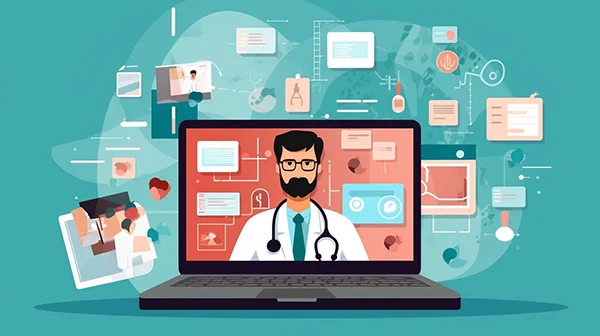
This constant cycle of learning is a vital part of our profession, but balancing it with a packed calendar can be tough. That’s where our comprehensive guide comes into play: we delve deep into online learning – an incredible tool that fits seamlessly into your hectic routine, keeping you abreast of recent developments without missing a beat.
Dive in and find out how e-learning could transform your journey as a dedicated healthcare professional!
Key Advantages of E-Learning in Healthcare
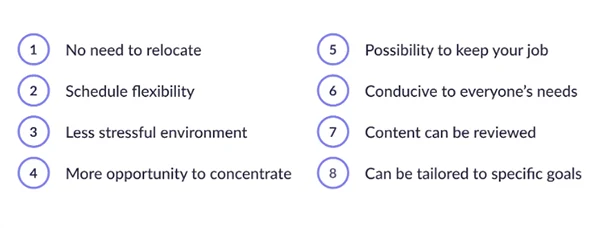
E-learning provides multiple benefits for healthcare professionals, including a flexible schedule that accommodates busy working hours and locations.
For reasons like, learning environments are less stressful which allows for enhanced concentration and full participation in lectures or classes, online learning is better than on-campus education.
With online courses, learning environments are less stressful. Individuals can balance their education and work commitments efficiently.
Interesting Fact
Recent studies depict that online learning has proven useful. Since learners can retain 25-60% of material compared to 8-10% in physical interactions.
E-learning programs are designed to cater to individual needs while providing unlimited opportunities for content review whenever needed. The rest of the advantages are as follows:
Flexibility in Schedule and Location
With online learning, you can take your health course when and where you want. Busy schedule? No problem. You don’t have to be in a set place at a set time. Online learning lets you pick the spot that works best for you.
It can be on your couch at home or at the desk in your office during lunch break. As long as there is internet, you are good to go.
United Medical Education has structured its entire learning system around those needing a flexible education schedule. Their course in ACLS certification is provided through a custom automated teaching, testing, and certificate delivery system.
Less Stressful Learning Environment
Online learning can lower stress for healthcare professionals. Without a noisy and busy class, they focus better. They study at their own pace and do not have to rush. This makes learning calm and enjoyable.
Plus, there’s no fear of asking questions in online classes! Everyone has an equal chance to speak up. It helps in building confidence too.
Enhanced Concentration and Participation
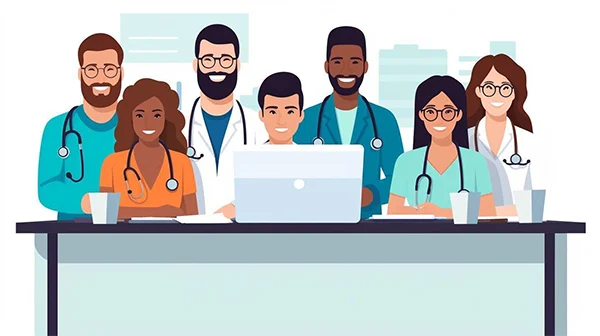
Online classes can help you focus better. They have fewer things to distract you from your studies. You learn in a place where you feel comfortable and at ease, like your home or a favorite café. This helps to boost your concentration.
More people join online learning too. They feel safe and free to share their ideas without fear or worry. Everyone gets a chance to take part in activities, discussions, and tasks.
The result? More participation by all students!
Ability to Maintain Current Job
Keeping a job while learning is easy with online training. Healthcare staff can take classes and do their work at the same time. They can learn new skills without leaving their current job.
This way, they don’t lose money or miss out on work days. Online learning lets them grow in their field while keeping up with day-to-day duties. It saves time and money for both workers and healthcare units.
Tailored to Individual Needs
Online learning fits everyone. Each person is unique with their own way of learning. Some folks learn fast; some slow. Others need to read things many times, and some just once. Online classes suit all these needs well.
They let you move at your pace and focus on what you find hard. You can repeat lessons or skip those you already know. This helps save time and makes sure no one feels left behind.
Better yet, online classes often come in different styles – videos, quizzes, or readings – so everyone gets the best way to learn for them.
Unlimited Content Review
You can look at online lessons again and again. This makes e-learning great for healthcare studies. It is hard to learn all the facts in one go. But with online classes, there are no limits! You can watch a lesson many times if you need to.
If a piece of coursework is tough, don’t worry! Keep going back until you understand it well.
Customized to Healthcare Education Goals
E-learning fits the needs of healthcare education. It can be shaped to reach specific goals. For example, for a nurse who wants to learn about new drugs, online learning can focus on that.
Do You Know?
Recent research uncovered the global e-learning market size is expected to hit $350 billion in 2025.
A doctor wanting more skills in surgery can find courses on it too.
Students are not made to sit through topics they already know well or have no interest in. This focused way of learning saves time and effort. It helps learners get better at what matters most to them quickly and with ease.
Investment in Personal Growth
Taking online classes helps you grow on a personal level. It gives you new skills to excel at your job. E-learning also boosts confidence and makes you proud of yourself. This self-growth can even lead to better patient care.
It’s an investment that pays off for both healthcare pros and those they serve. The EdTech market has grown big, showing how many people see the value of online learning in their lives today.
Improved Patient Care Quality
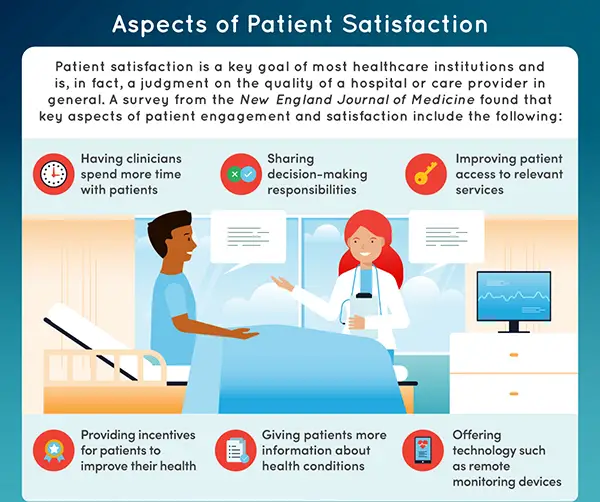
Online learning makes better doctors and nurses. This is a fact! Online courses help them to know more about taking care of you when you are sick. These courses also show them new ways to make sure that they do their job well.
E-learning helps healthcare staff stay updated with the latest in patient care. For example, they can learn how to use new machines or procedures by just going online. They don’t have to leave work or travel far away for training anymore.
This saves time and lets them focus on what matters the most – helping people get better.
Real-world Cost Benefits of E-Learning
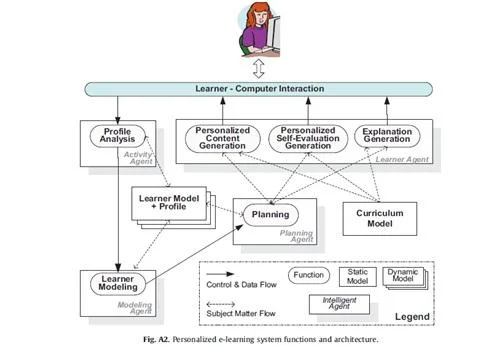
In the healthcare sector, E-learning offers significant financial benefits. Here are some real-world cost gains that come with E-learning:
- Reduced Training Expenses: In traditional learning settings, finances are allocated for instructors, training venues, materials, and travel. E-learning eliminates these costs, resulting in substantial savings.
Did You Know?
In 2020, digital health startups earned a $30 billion venture capital boost. Experts guess that by 2026 we could see up to $370 billion spent on digital learning.
- Accessible Anytime, Anywhere: E-learning platforms provide 24/7 access to learning materials. This means healthcare professionals can engage in their education anytime, anywhere, and on any device which saves time and resources that can be allocated elsewhere.
- Enhanced Learning Outcomes: Interactive formats like images, videos, and quizzes prevent information overload, improving learning outcomes. Better results mean less repetition of courses, saving both time and money.
- Unlimited Course Revisits: E-learning courses can be revisited anytime. This not only improves retention and confidence but also eliminates the need for re-training, further cutting costs.
- Skill Upgradation: E-learning allows healthcare professionals to keep their skills updated with the latest techniques and technologies. This reduces the need for external training programs, leading to further cost reductions.
- Compliance Training: Meeting strict regulations in an engaging and flexible way is possible with e-learning. Organizations can save on the costs that come with non-compliance fines or penalties.
Overall, e-learning is not just an adaptive and flexible learning method, it is also an effective cost-saving tool for healthcare organizations.
Examples of E-Learning in Healthcare
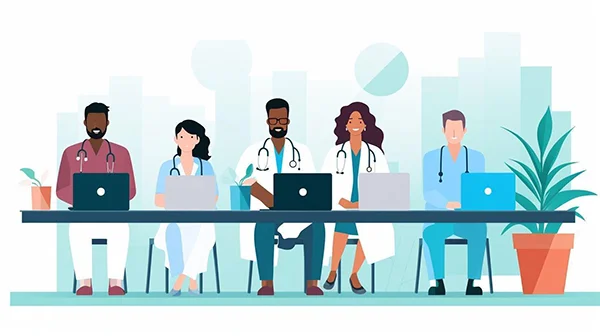
There are many real-life cases of how e-learning aids healthcare.
- The WHO Academy is a key player. It gives training that meets the needs of health workers around the world. They offer classes in many languages.
- Some medical schools use e-learning to train healthcare experts of the future. Students who can’t go to hands-on training sessions find this very helpful.
- Hospitals and clinics also make good use of online education. This helps their staff stay up-to-date with new rules and ways of doing things.
Conclusion
Online learning helps healthcare pros grow. It makes it easy to learn new skills, keep up with changes, and help patients better. With online study, pros can keep working while they learn. No doubt, e-learning is a big win for the healthcare field!










